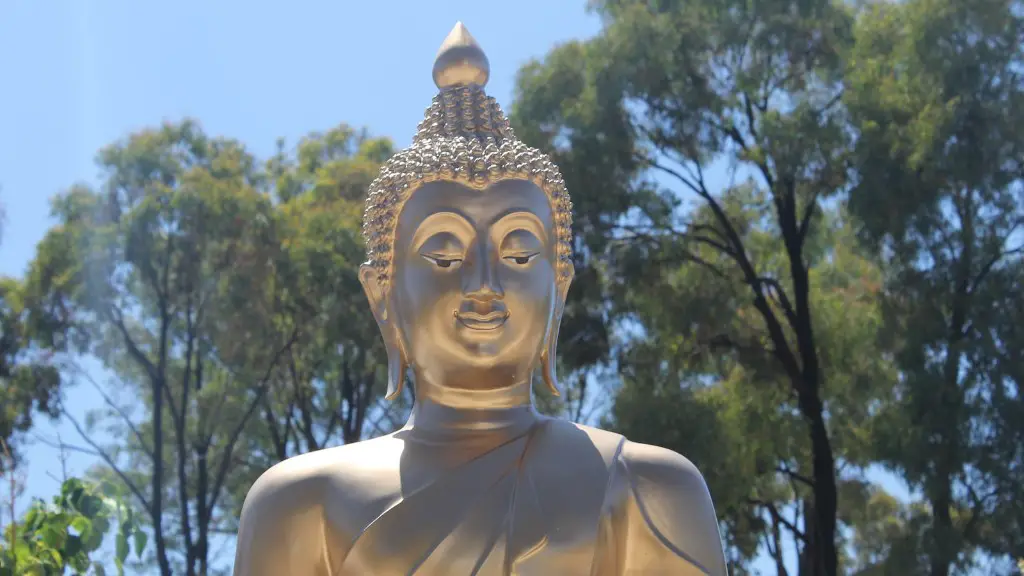Buddhism is a religion that began in India over 2,000 years ago. The word “buddha” means “awakened one” or “enlightened one.” Buddhas are those who have attained a high level of spiritual understanding and are able to live in complete harmony with the world around them. There are many different types of buddhism, but all share the same goal of liberation from suffering.
Mindfulness is a practice that is central to buddhism. It involves paying attention to the present moment without judgment or reactivity. This allows practitioners to develop a greater awareness of their thoughts, emotions, and physical sensations. Mindfulness can be practiced in many different ways, but the most common method is through meditation.
When it comes to the origins of mindfulness, there is some debate. While it is certainly true that mindfulness has its roots in Buddhism, some experts believe that it may have originated with other Eastern philosophies as well. However, there is no doubt that Buddhism has played a significant role in the development of mindfulness as we know it today.
Is mindfulness connected to Buddhism?
Mindfulness meditation is a key element of the Buddha’s “noble eightfold path” to end suffering and instill wisdom. It is a form of mindfulness that is widely practiced in Buddhism and has been shown to be effective in psychology. Mindfulness meditation involves focusing one’s attention on the present moment and observing one’s thoughts, emotions, and physical sensations without judgment. This allows for a greater understanding of oneself and the world around them.
The concept of mindfulness has its roots in the Buddhist tradition, where it is used to refer to awareness, attention, or alertness. In the Indian Buddhist tradition, mindfulness is cultivated through meditation, and is used to gain insight into the nature of reality.
Is mindfulness from Buddhism or Hinduism
Mindfulness is a practice that has its roots in various religious and secular traditions, from Hinduism and Buddhism to yoga and, more recently, non-religious meditation. The aim of mindfulness is to cultivate a greater awareness of the present moment, and to develop a more non-judgmental and accepting attitude towards oneself and others. Mindfulness can be practiced in many different ways, but typically involves focusing one’s attention on the breath or on a certain mantra or phrase, and observing the thoughts and sensations that arise without getting too caught up in them.
Mindfulness is a state of being present in the moment and being aware of your thoughts, feelings, and surroundings. The contemporary perspective of mindfulness is often described as an independent skill, whereas in Buddhism it is interdependent. From a Buddhist perspective, the effectiveness of mindfulness is contextually dependent on other factors that work together and build on one another. Factors such as compassion, ethics, and wisdom are important in order to create the conditions for mindfulness to be effective.
Who founded mindfulness?
Jon Kabat-Zinn is a researcher and writer who has been instrumental in bringing mindfulness into the mainstream western world. He is the founder of the Stress Reduction Clinic at the University of Massachusetts and the author of several books on mindfulness, including “Full Catastrophe Living” and “Wherever You Go, There You Are”. Kabat-Zinn has been a pioneer in bringing mindfulness into healthcare settings and has conducted extensive research on the efficacy of mindfulness-based interventions.
Mindfulness is a key concept in Christianity, as it is in all major world religions. The Bible consistently exhorts us to exercise disciplined attentiveness to our minds and hearts, to set aside our attachment to ourselves, and to live in the awareness of God’s moment-to-moment provision. By doing so, we can learn to be more present in each moment, and to find peace and contentment in our lives.
What religions practice mindfulness?
Mindfulness is a state of being aware of and attentive to the present moment. It is a way of being present in the here and now, without judgment or reaction. When you are mindful, you are not lost in thought or caught up in emotion. You are present and aware of what is happening around you.
Mindfulness can be practiced in many ways, but the basic idea is to pay attention to your thoughts, feelings, and sensations in a non-judgmental way. This means not judging yourself or your experience, but simply observing it. Mindfulness can be practiced anywhere, at any time. You can be mindful of your thoughts as you’re lying in bed, or of your breath as you’re walking down the street.
There are many benefits to mindfulness, including reducing stress, improving mental and physical health, and increasing focus and concentration. If you’re interested in trying mindfulness, there are many resources available to help you get started.
Meditation is a valuable tool for developing self-knowledge, learning to concentrate and dealing with stress. It can be learned by anyone, regardless of their religious beliefs.
Which religion created meditation
Mindfulness as a form of meditation has been traced back to Hinduism, around 1500 BCE, and is heavily connected with the practice of yoga. Early Hindu texts describe yoga as a way to still the mind and focus one’s attention on the present moment. Over time, the practice of mindfulness has been adapted by different cultures and religions, and is now practiced by people all over the world.
Thich Nhat Hanh is a prolific author and peace activist, often referred to as the “father of mindfulness”. He is a leading advocate for using mindfulness to improve one’s quality of life and create social change. Through his writing and activism, Thich Nhat Hanh has helped to bring mindfulness into the mainstream consciousness. He is a highly respected figure in the world of mindfulness and Buddhism, and his work has inspired many people to adopt a more mindful lifestyle.
Is Buddhism a faith or religion?
Buddhism is one of the major world religions with approximately 470 million followers. It was founded by Siddhartha Gautama, also known as the Buddha, more than 2,500 years ago in India. Buddhism teaches that the way to end suffering is to end the desire that causes it. Buddhists follow the Noble Eightfold Path, which includes practices such as meditation, to help them reach nirvana, a state of perfect peace.
Buddhism originated in India in the 6th century BC. It is a non-theistic religion, which means that it does not believe in a creator God. Buddhism was founded by Siddhartha Gautama, who is also known as Buddha. He was a Hindu prince who, according to legend, became enlightened after meditating for many years.
What religion is most similar to Buddhism
Hinduism is the oldest religion in the world, and it has been around for over 5,000 years. Hinduism is the third largest religion in the world with over 1 billion followers. Hinduism has many different beliefs and there is no single founder. Hinduism is centred around the idea of karma, which is the belief that your actions in this life will determine your fate in the next life. Buddhism is a religion that was founded by Siddhartha Gautama in the 5th century BC. Buddhism has over 500 million followers and is the fourth largest religion in the world. Buddhism focuses on the Four Noble Truths, which are that life is suffering, that suffering is caused by desire, that suffering can be ended by eliminating desire, and that this can be achieved by following the Eightfold Path. Although Hinduism and Buddhism originated from the same place, they have some very different beliefs.
The three poisons are the root cause of suffering in the world. They are the primary drivers of our negative emotions and behaviours. Greed, ignorance and hatred lead to a never-ending cycle of craving and aversion, attachment and suffering. When we are caught in this cycle, we are unable to see things as they really are and we create more suffering for ourselves and others.
What are the 3 pillars of mindfulness?
Mindfulness meditation is a form of mindfulness that is widely practiced in the western world. It is an mindfulness-based stress reduction technique that was developed by Jon Kabat-Zinn. The practice involves sitting silently and paying attention to one’s breath, with the aim of achieving a state of mindfulness, or full awareness of the present moment.
当我们遇到困难或者情绪不稳定的时候,常常会有一种评判自己的冲动,认为自己应该做得更好或者应该避免这种情况的发生。然而,这种情况只会让我们感到更加紧张和焦虑,而不是帮助我们解决问题。更好的方法是,我们应该把自己当作一个旁观者,对自己的经历保持公
Conclusion
There is no single answer to this question as it is a complex and multi-layered topic. Mindfulness is a concept that has been practiced by many different cultures and religions for centuries, so it is difficult to pinpoint where it originated. However, many scholars believe that the roots of mindfulness can be traced back to Buddhist teachings. The Buddha was one of the first to teach about the importance of living in the present moment and being aware of your thoughts and actions. This philosophy has been passed down through the generations and has influenced other religions and practices, such as yoga and meditation. While mindfulness is not exclusive to Buddhism, the teachings of the Buddha have played a significant role in shaping the way we think about and practice mindfulness today.
Yes, mindfulness does come from Buddhism.


